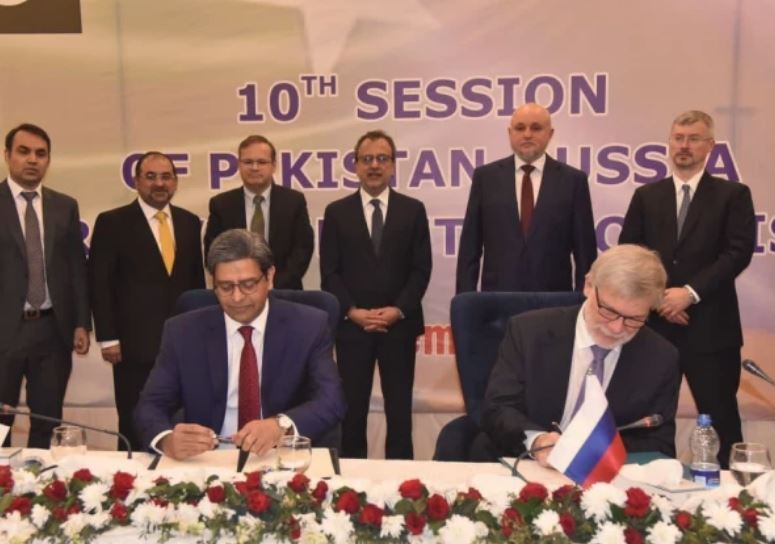Islamabad: Pakistan and Russia have reaffirmed their commitment to a “forward-looking” partnership and agreed to deepen bilateral cooperation in diversified trade, energy, business-to-business engagements and social sectors like health and education.
The 10th Pakistan-Russia Intergovernmental Commission (IGC) on Trade, Economic, Scientific and Technical Cooperation, co-chaired by Pakistan’s Energy Minister Awais Leghari and his Russian counterpart Sergei Tsivilev, concluded on Thursday.
The Dawn newspaper reported that the two sides also signed three memorandums of understanding (MoUs) for cooperation in quality standards, anti-monopoly regulation and the media sector.
“The two sides reaffirmed their commitment to a broad, forward-looking partnership that supports the socio-economic development of Pakistan and the Russian Federation and contributes to regional stability and connectivity,” according to an official statement.
Both sides expressed satisfaction with the discussions on enhancing bilateral trade, diversifying export portfolios and strengthening business-to-business engagement.
They reiterated the importance of continued cooperation to facilitate trade fairs, exchanges between business communities and improved market access for key Pakistani products, including textiles, sports goods, IT services, engineering items and agricultural commodities.
The two delegations also emphasised the significance of advancing the pilot cargo movement along agreed corridors.
Energy cooperation remained a central element of the dialogue, with both sides noting positive engagement in the oil and gas sectors, opportunities in LNG and LPG supply frameworks and the importance of technical collaboration.
They also emphasised the potential for renewable energy, hydropower development and water-related technologies, including hydrological monitoring and flood resilience.
In the industrial and technology sectors, discussions covered pharmaceutical cooperation, including insulin localisation, modernisation of the Pakistan Steel Mills’ metallurgical capacity and possible ventures in heavy machinery, mining and advanced manufacturing.
The two sides underscored the importance of scientific, academic and technological collaboration.
In this regard, both sides welcomed initiatives to establish Russian language centres in Islamabad and Karachi.
The delegations also expressed appreciation for expanding cultural, educational and people-to-people exchanges, including school partnerships, youth programmes and cultural outreach efforts.
The session also discussed avenues for cooperation in humanitarian and disaster management.
The two sides also discussed opportunities in sports cooperation, tourism promotion and strengthening media and cultural linkages.
The three MoUs signed at the end included one between the Pakistan Standards and Quality Control Authority (PSQCA) and Russia’s Federal Agency for Technical Regulation and Metrology to strengthen collaboration in standardisation, metrology and conformity assessment.
The second MoU was between the Competition Commission of Pakistan (CCP) and the Federal Antimonopoly Service of Russia to support cooperation in competition law, exchange of expertise and capacity building.
The third MoU was signed by the state-run news agencies — Associated Press of Pakistan and Russia’s Sputnik — to enhance media cooperation and professional exchanges.
The two sides also decided to hold the 11th session of the Pakistan-Russia Inter-governmental Commission in Russia in 2026, Dawn reported.
PTI
